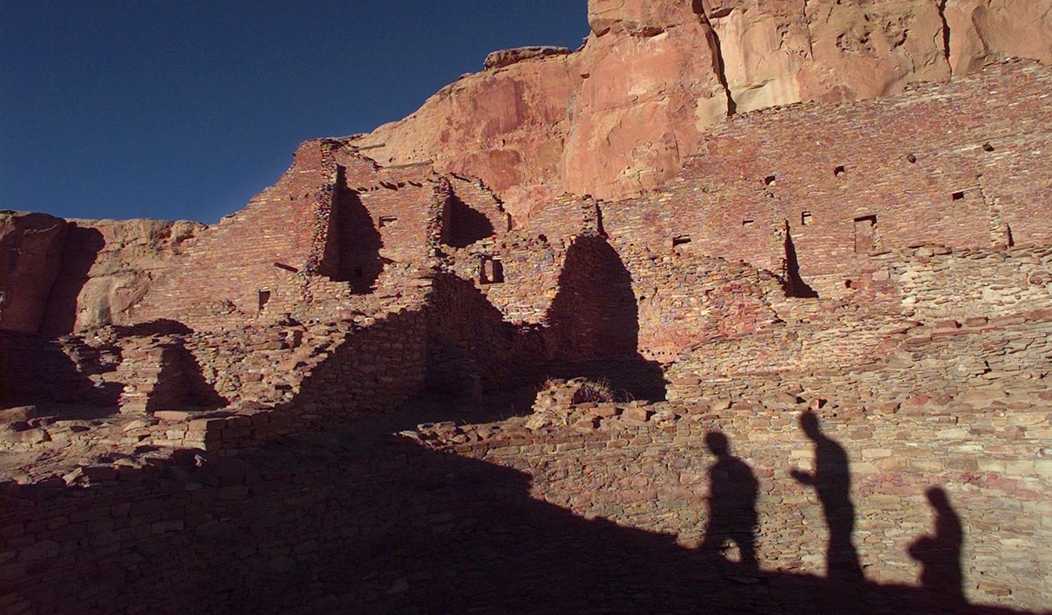Friday morning Interior Secretary Deb Haaland handed down a 20-year ban on new oil leases near Chaco Canyon in New Mexico. The ban applies to a 10-mile area around the Chaco Culture National Historical Park. Drilling will still be permitted on existing leases. Energy Wire said that the order came at the end of a long effort to preserve sacred and cultural sites that some tribes have said extend beyond the boundaries of the park. Haaland commented:
Efforts to protect the Chaco landscape have been ongoing for decades, as Tribal communities have raised concerns about the impacts that new development would have on areas of deep cultural connection,” Haaland said in a statement. “Today marks an important step in fulfilling President [Joe] Biden’s commitments to Indian Country, by protecting Chaco Canyon, a sacred place that holds deep meaning for the Indigenous peoples whose ancestors have called this place home since time immemorial.
Tracy Stone-Manning, who is the director of the Bureau of Land Management stated, “The exceptional landscape in the Greater Chaco region has profound cultural importance. Today’s announcement marks an important step in ensuring Indigenous voices help inform the management of our public lands.”
Not everyone was in agreement with Haaland’s decision. The Navajo Nation, whose members depend on revenue from energy leases, was in opposition. The Navajo Nation Council recently retracted its proposal of a five-mile ban which it maintains would negatively impact tribal members.
When I was a firefighter, I was often part of a crew dispatched to conduct controlled burns. In some cases, the area needed to be assessed for “cultural resources.” Cultural resources could include native ruins or the remains of a settler’s cabin. I remember having to drag pieces of an old corral out of the burn area. During one particular burn, we were instructed to protect what was left of an antique car. We located the site via GPS. Upon arrival, no one could find a car. Finally, someone looked down and discovered a pile of rust. That was the antique car we were supposed to protect.
At the time the State of Utah defined a cultural resource as a man-made item or construction that had been there for 50 years or more. So theoretically if you dropped a beer can on the ground, for 49.9 years it was garbage. Once it had been there for 50 years, it became a cultural resource. No one wants to see a legitimate cultural site damaged or destroyed, and while the ban protects approximately 5,000 archeological sites was there any discussion of how companies could avoid impacting them?
Having lived in oil and gas country, I have seen firsthand how difficult it is for an energy company to develop a site. There is the issue of establishing mineral rights and the exploration needed to determine if it is worth the time to drill. And if all systems are “go,” then there must be a costly and time-consuming environmental impact assessment followed by an environmental impact statement. The company must not only demonstrate how they are going to avoid or mitigate any environmental damage and prove that the operation will not impact any cultural resources. And with the advent of directional drilling companies can avoid a great deal of surface disturbance. And even if all of the pieces fall into place there will likely be at least one lawsuit from one of the multitude of environmental groups.
At some point, it becomes a fool’s errand to try to drill, which may be the point of this entire exercise. It is no secret that the administration and the green energy industry are in one another’s pockets. It stands to reason that energy development would have been prohibited on the land for one reason or another. The existence of archeological sites may have simply saved the administration the time of coming up with another excuse.










Join the conversation as a VIP Member